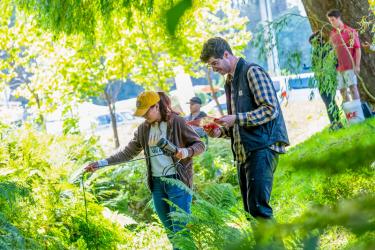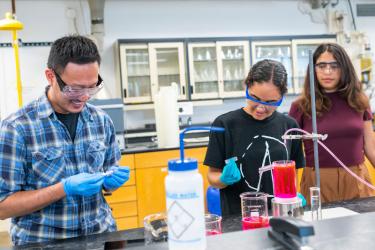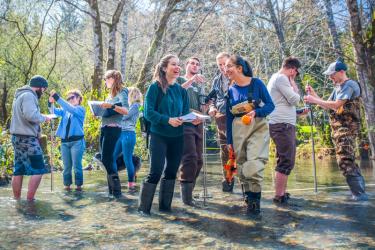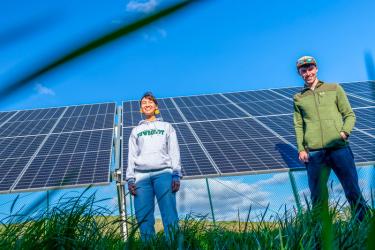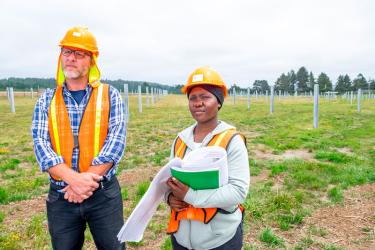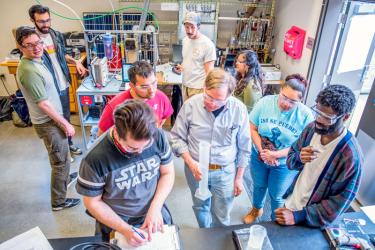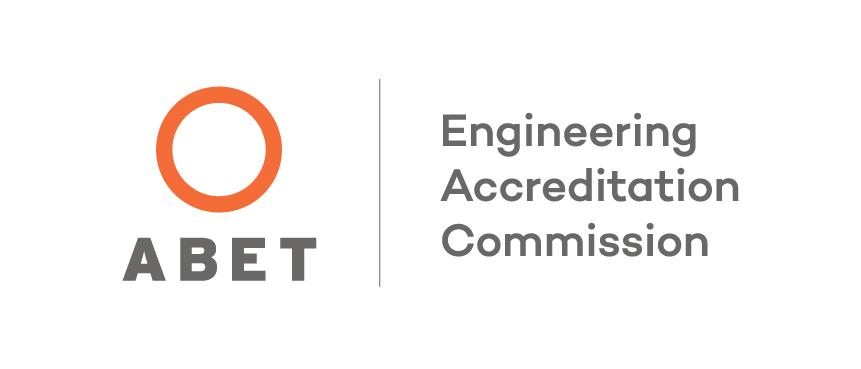The Schatz Energy Research Center is pleased to announce the Donald and Andrea Tuttle Fellowship for Clean Energy Studies at Cal Poly Humboldt. The Tuttles have established this annual fellowship as part of an effort to tackle the challenges posed by climate change, and to reduce its impacts on humanity and ecosystems. The fellowship will support graduate students in Environmental Systems who intend to research or conduct project work in renewable energy, energy efficiency, or related areas in the clean energy field.
The Tuttle Fellowship will provide $15,000 in financial support for one academic year. The recipient is also eligible to be employed on research projects at the Schatz Center (typically, quarter-time throughout the academic year). The fellowship may be renewed once, based on performance and at the discretion of Schatz Center directors and the selection committee, for a second year of study.
The Tuttle joins two fellowships already associated with the Schatz Center: the Blue Lake Rancheria Fellowship for Clean Energy Studies and the Schatz Energy Fellowship. Current year fellows are working with Center projects in off-grid energy access and smart grid technologies. Jimento Aikhuele and Anamika Singh are involved with the Center’s quality assurance project on solar system installations at public facilities in Nigeria and Niger; Aikhuele’s associated thesis is on the use of renewable energy technologies to prevent maternal and infant fatality. Steven Shoemaker is conducting a benefits analysis of the recently deployed Blue Lake Rancheria microgrid, which was recognized this fall by the US Federal Emergency Management Agency for energy resiliency, while Thalia Quinn is working on the Center’s new “Solar+” distributed generation project.

2017/18 Schatz fellows Anamika Singh and Thalia Quinn (l to r) outside the Schatz Center’s West Wing
Hailing from around the globe, Schatz fellows cite the Center’s unique blend of technology and policy, and bring with them a commitment to social justice and environmental health. Before coming to the Schatz Center, Singh worked for the Bureau of Energy Efficiency, Ministry of Power, in India. “I want to contribute to providing energy access to those 1.2 billion people who are living a life without energy, through renewable energy technology… until you can provide them with basic facilities, development will not come.”
All graduate student applicants in the Environmental Resources Engineering (ERE) and Energy Technology and Policy (ETaP) pathways of the Environmental Systems program are eligible for fellowship consideration. February 1 is the annual application deadline for admission into the graduate program at Cal Poly Humboldt. For more information, visit schatzcenter.org/fellowships, email serc@humboldt.edu, or call (707) 826-4345.

